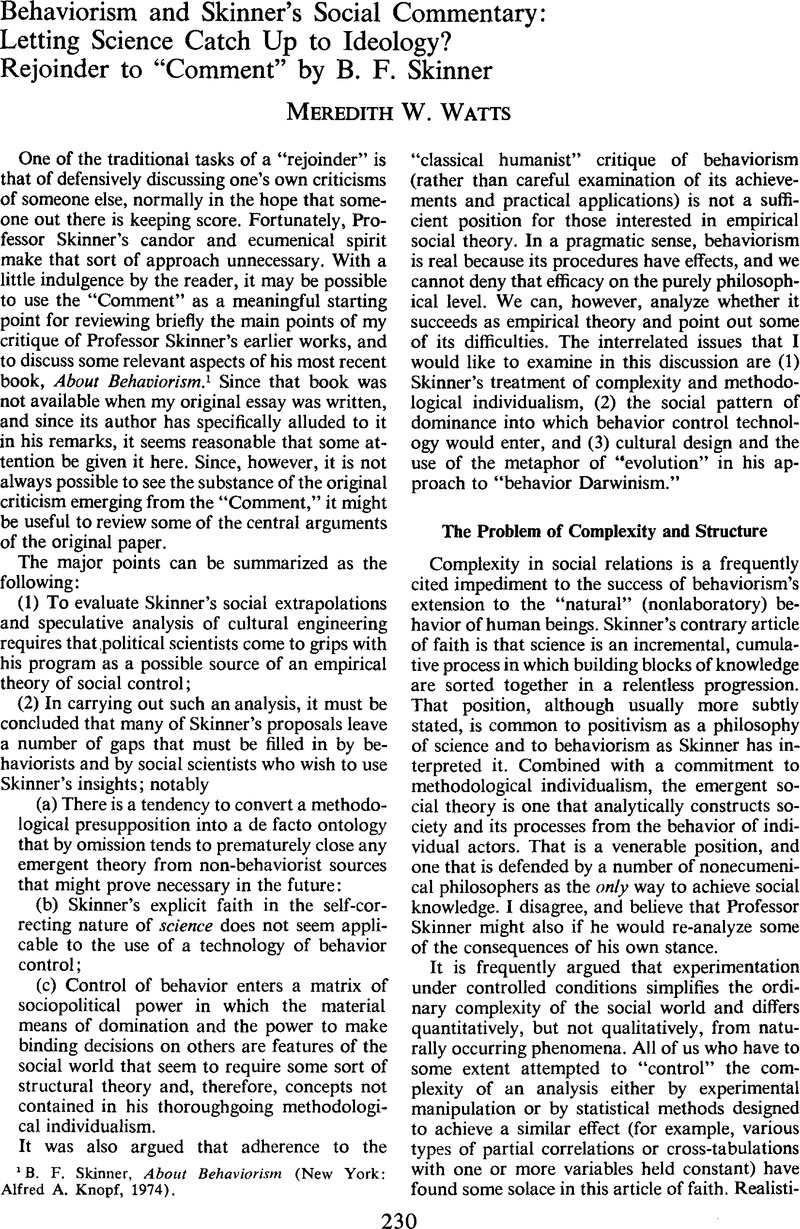Published online by Cambridge University Press: 01 August 2014

1 Skinner, B. F., About Behaviorism (New York: Alfred A. Knopf, 1974)Google Scholar.
2 The reference to the Agricultural Adjustment Act appears in a symposium involving Skinner and psychologist Carl R. Rogers. See Rogers, Carl R. and Skinner, B. F., “Some Issues Concerning the Control of Human Behavior,” Science, 124 (November 30, 1956), 1057–1066CrossRefGoogle ScholarPubMed.
3 Skinner, B. F., About Behaviorism, pp. 11–13Google Scholar.
4 Ibid.
5 Berger, Peter and Luckmann, Thomas, The Social Construction of Reality (New York: Doubleday, 1966)Google Scholar.
6 Skinner, B. F., About Behaviorism, p. 191Google Scholar.
7 Ibid., p. 196.
8 Ibid., p. 186.
9 Ferster, C. B., “Arbitrary versus Natural Reinforcement,” in The Reinforcement of Social Behavior, ed. McGinnies, Elliot and Ferster, C. B. (Boston: Houghton Mifflin, 1971), p. 434Google Scholar. This article was reprinted from Psychological Record, 17 (July, 1967), 341–357Google Scholar.
10 Ibid.
11 See Evans, Richard I., B. F. Skinner: The Man and His Ideas (New York: E. P. Dutton, 1968), pp. 49–50Google Scholar. Skinner expresses this sentiment in the context of an interview with Evans.
12 Skinner, B. F., About Behaviorism, p. 203Google Scholar.
13 Ibid., p. 201.
14 Ibid., p. 206.
15 See Thorson, Thomas L., The Logic of Democracy (New York: Holt, Rinehart and Winston, 1962)Google Scholar.
16 See MacCorquodale, Kenneth, “On Chomsky's Review of Skinner's Verbal Behavior,” Journal of the Experimental Analysis of Behavior, 13 (January. 1970), 83–99CrossRefGoogle Scholar. That author presents a lucid defense of Skinner's analysis in that book but strongly stresses its hypothetical nature.
Comments
No Comments have been published for this article.